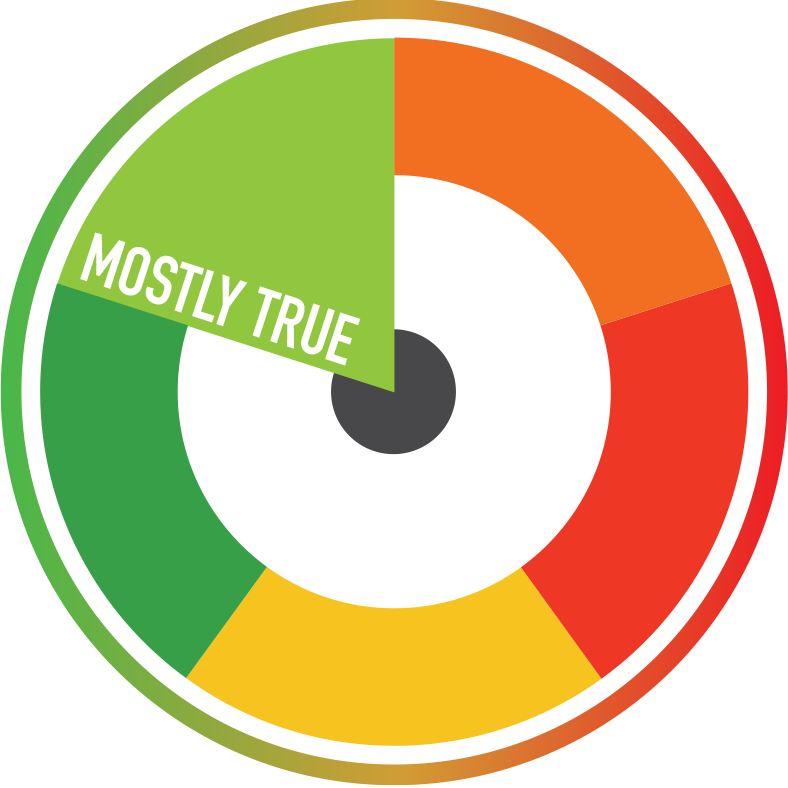On the 3rd of February 2019, several newspapers including Metro reported that more weed farms with Dutch characteristics were being discovered in countries across Europe. The articles were written due to the report from the investigative journalism programme Reporter Radio on Dutch radio station NPO Radio 1. The claim seems to be mostly true.
In the article, various people who speak in the Reporter Radio program are cited. First there are mostly statements about the weed trade connection between the Netherlands and Belgium, by Marc Vancoillie who is the chief of the Belgian federal police’s drugs department. Mr. Vancoillie says that lots of Dutch individuals are found in Belgian drug networks. However, he nor anyone else of the federal police was accessible for further comment on that statement and no national numbers are public on exactly how many Dutch individuals are detained. There were some specific numbers for the province of Antwerp though which showed a clear increase in dismantled weed farms, involvement of Dutch people and dismantled drug houses.
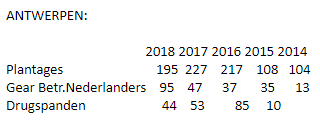
Alongside the numbers from Antwerp, data from the provinces of Limburg and Liège were also provided. These three provinces have direct highways connected to the Netherlands. Limburg only reported on the year of 2018, with 148 weed farms dismantled. Liège reported an increase from 98 drug farm related case files in 2016 to 169 case files in 2018. A report on illegal drugs trade in Belgium and the Netherlands, made by researchers at Ghent University and others, states a total of 1234 discovered farms across all of Belgium in 2017. That backs the claim in Reporter Radio of about 1200 discovered farms.

While Belgium generally has had a stable amount of dismantled plantations since 2011, when looking at other European countries general increases are visible. Laurent Laniel of the European Monitoring Centre for Drugs and Drug Addiction (EMCDDA) states in Reporter Radio that around 500 weed farms were found in Spain but without any specifics about Dutch weed farms. According to him, the characteristics would include involvement of Dutch individuals as well as Dutch devices being used at the plantations. By contacting the Spanish Ministry of Internal Affairs, we discovered that the amount of Dutch people that were detained in all of Spain did significantly increase from 368 in 2010 to 553 in 2017. The numbers do not specify what they were arrested for, so we can’t say whether the increase of arrests is due to the weed farms.
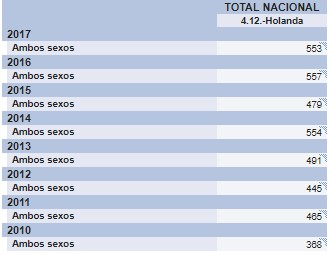
Another of Laniels claims was that Dutch drug traders own apartments for their operations in Grenada, which is located in the Spanish autonomous region of Andalucía. Statistics for that weren’t made, but looking at the arrests of Dutch individuals per province we are able to tell that the largest amount of arrests is made in Andalucía. Again, there is no specification about drug related arrests.
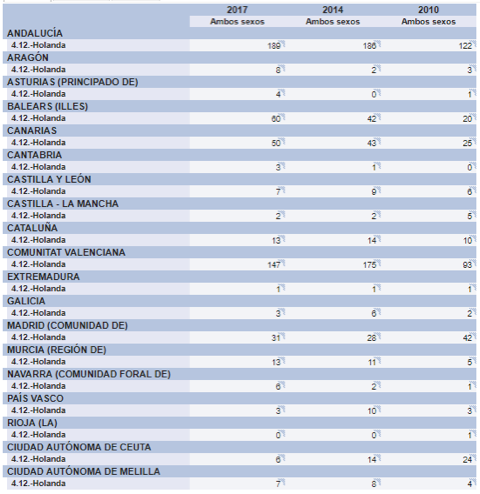
Next to Belgium and Spain, Germany also saw an increase in weed farms. In Reporter Radio, spokesperson of the police in the German state of North Rhine-Westphalia Frank Scheulen said that the amount of discovered farms multiplied by 2,5 times more in 2017 than in 2016. The number rose from 82 to 222 which actually is an multiplication of 2,7. But once more there were no specifications about the involvement of Dutch individuals.
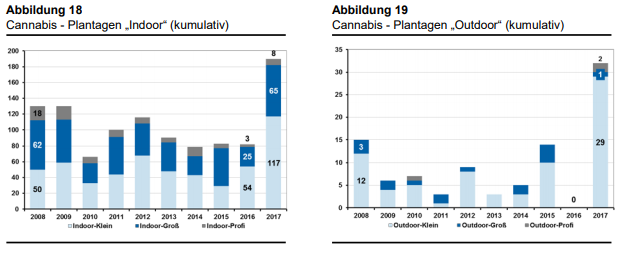
The total of weed farms found in the German ‘land’ of North Rhine-Westphalia. Source: Police of North Rhine-Westphalia.
Finally it is worth noting that for some of the contacted people, it seemed the most difficult to answer what exactly defines a “Dutch” weed farm. There aren’t really any statistics available about the Dutch part of the claim.
In short, there has been a general increase in weed farms across Europe as well as more involvement of a Dutch presence due to the rising number of detained Dutch individuals. There are no hard numbers about “Dutch” weed farms. That’s why we rate the claim as mostly true.
Leave your comments, thoughts and suggestions in the box below. Take note: your response is moderated.

